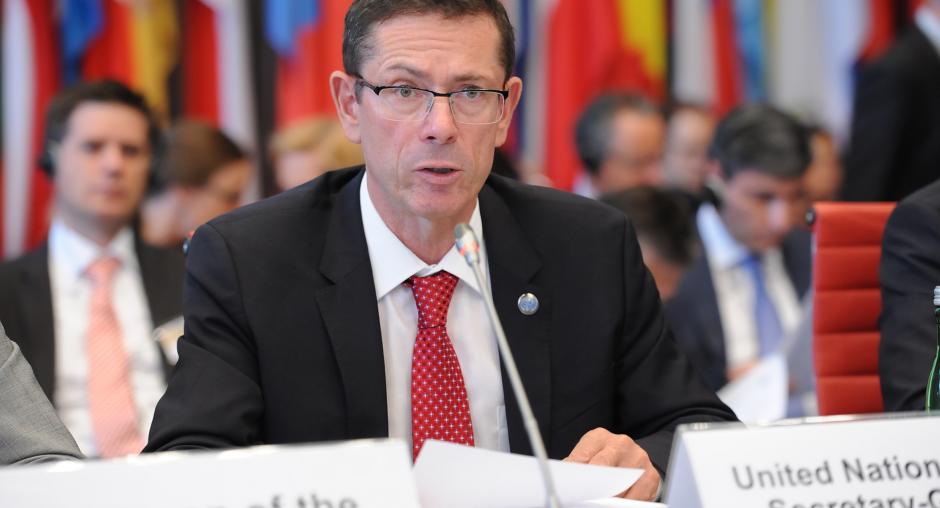UN Assistant Secretary-General addresses OSCE Permanent Council on deteriorating human rights situation as result of conflict in and around Ukraine

VIENNA, 7 July 2016 – Against the backdrop of the continuing conflict in and around Ukraine, the United Nations’ Assistant Secretary-General for Human Rights Ivan Šimonović addressed the Permanent Council in Vienna today on the co-operation and assistance of the Office of the High Commissioner of Human Rights (OHCHR) to Ukraine in this field.
Šimonović started by highlighting the close partnership between the OSCE and the OHCHR in Ukraine and elsewhere, which is driven by the shared commitment to human rights and the rule of law. He then presented findings of the UN Human Rights Monitoring Mission in Ukraine and observations from a recent personal mission to the country.
He warned of a high risk of the re-escalation of wide-scale hostilities in Ukraine if urgent action was not taken to separate sides and remove heavy weaponry. He called upon the sides to implement the measures agreed in Minsk, many of them related to human rights: “Minsk is still the best chance for a sustainable peace.”
Šimonović deplored the at least 31,350 casualties of the conflict, including some 9,500 people killed. “In June, OHCHR recorded 69 civilian casualties”, he said, adding that 60 per cent of these casualties were caused by shelling from mortars and howitzers, weapons prohibited by the Minsk agreements. “Mines, booby traps, and unexploded remnants of war also continue to be a major threat to civilians, and systemic co-ordination of mine action activities by all sides is strongly needed,” said Šimonović. Pointing to the fact that many persons are missing as a result of the conflict, he said: “Co-operation between the Government and armed groups is crucial in establishing the fate of persons that had gone missing in this conflict.”
The Assistant Secretary-General informed representatives of the OSCE participating States and Partners for Co-operation in the Permanent Council that demands for human rights and freedoms remain today on both sides of the contact line. Šimonović said that limits to the freedom of expression, peaceful assembly, and association are problematic for the prospects of holding free and fair elections in eastern Ukraine. He also noted complaints about the curbing of civil and political rights in Government-controlled areas, especially in the conflict zone.
Šimonović expressed his deep concern on information that the OHCHR deems credible, of torture and ill-treatment. He deplored the deprivation of humanitarian assistance from the population in conflict-affected areas.
Finding that the human rights situation in Crimea had deteriorated considerably, Šimonović highlighted the worsening effects on the situation of the Crimean Tatars. “I urge the Supreme Court of the Russian Federation to overturn the decision to ban their main representative body,” said Šimonović.
“We need to see an end to the conflict, accountability for the killings and violations since 2014, and justice for victims and their families,” he concluded.
